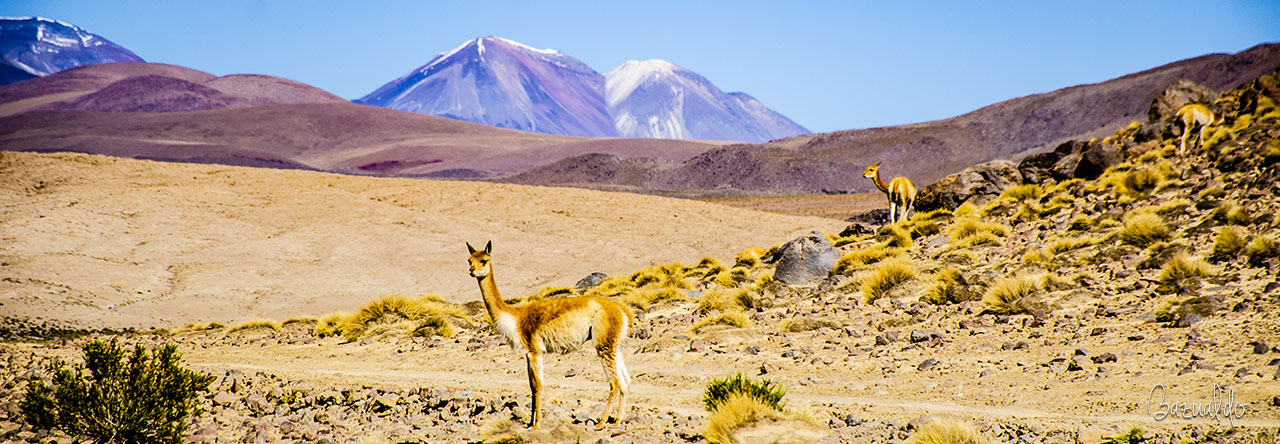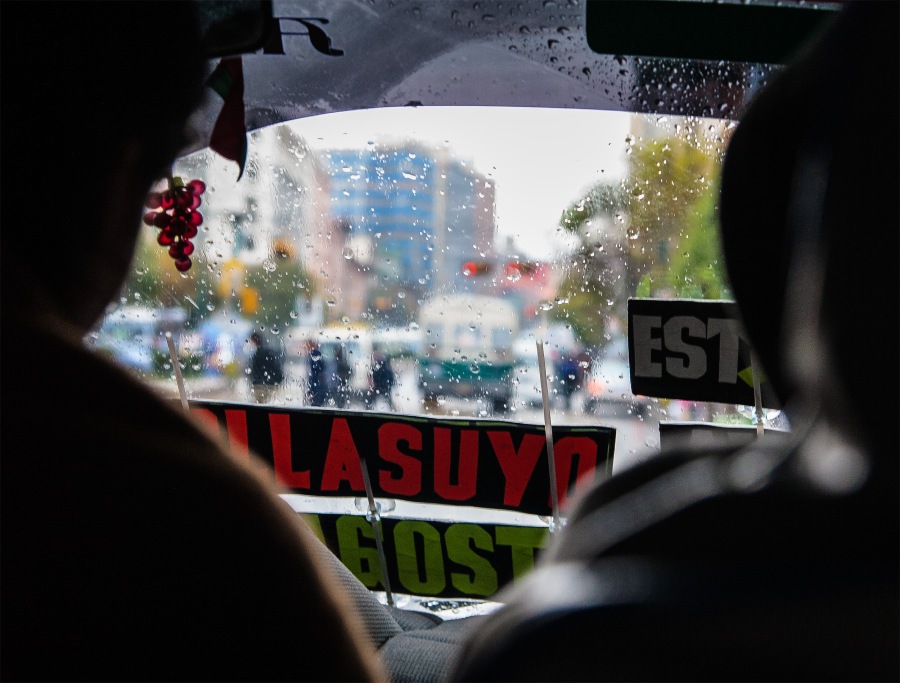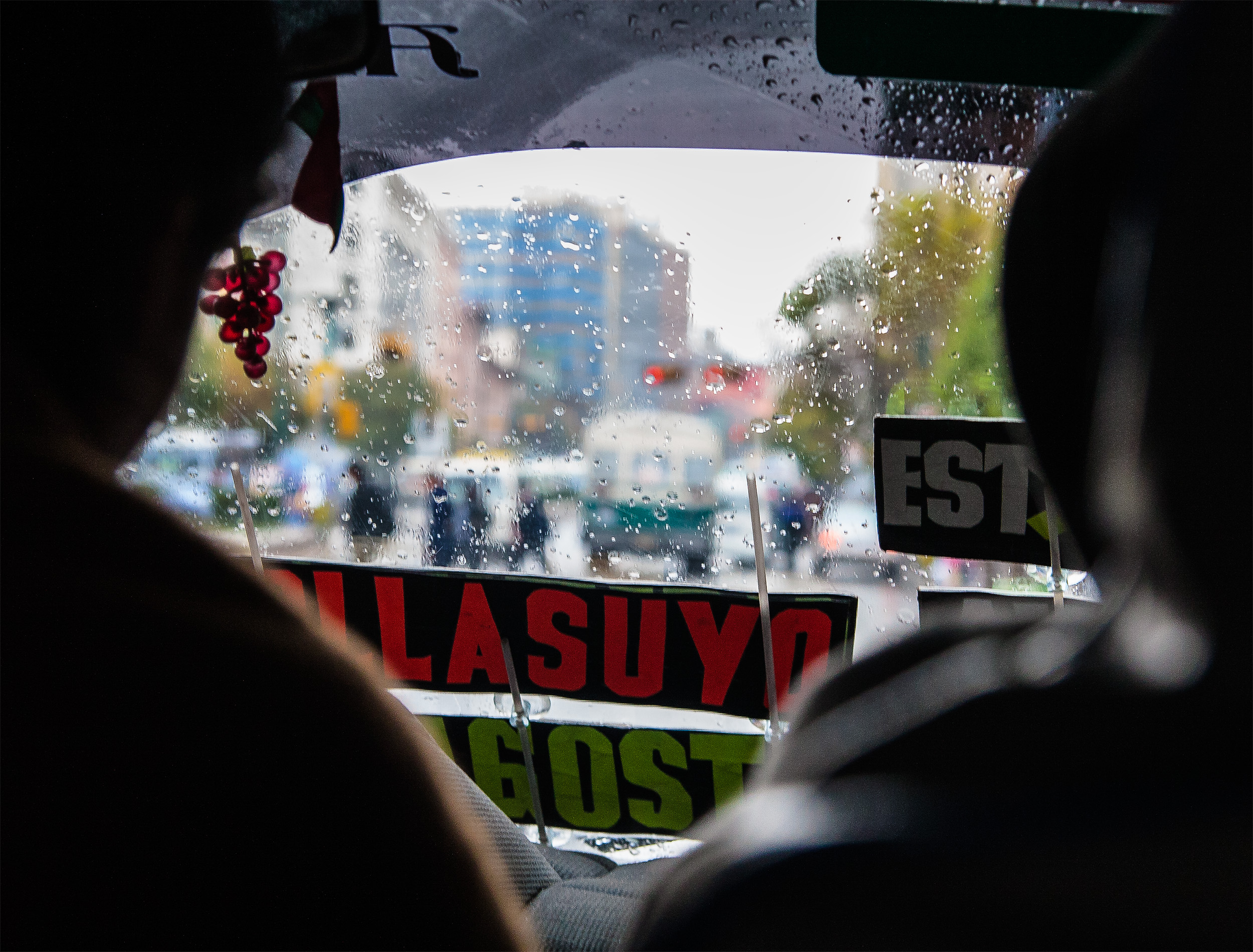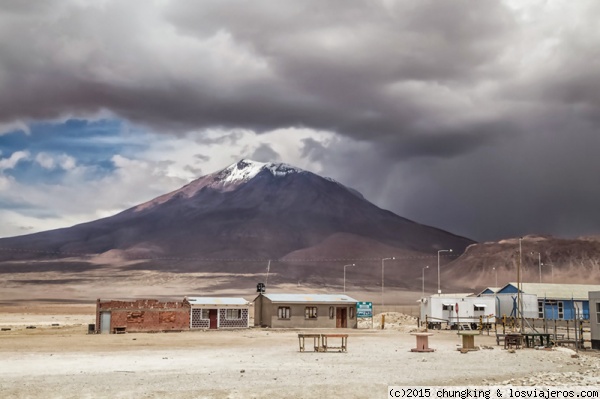Travelling in South America is often associated with a number of dangers and scams targeted towards travelers. Especially if travelling in South America by bus. These fears can be somewhat exaggerated turning into urban myths which spread an image much scarier than reality. However, when travelling, you should always be careful and take some necessary precautions. Scams can occur in South America (as in any other places in the world), and unaware travelers can easily fall victim to them. Here is a list of the most common ones in this part of the world and how to spot and avoid them.
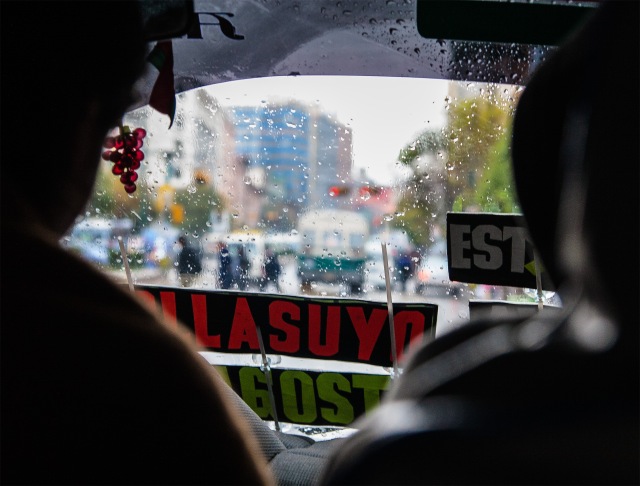

Taxi scams
There are different types of scams involving taxis. The general rule is to not get a taxi that doesn’t have a working taximeter. However, most taxis, even radio taxis from reliable taxi companies in Bolivia and Peru don’t have them. For this reason, it is better to check the price and agree with the taxi driver before getting in the car.
Sometimes the driver will pretend that the accommodation you picked is already full or that it’s really bad and will give you suggestions of places you should go. Which end up being way more expensive. Tell the driver that you have a room booked (even if you don’t) and insist on being driven there, they rarely insist more.
What to do:
- Check beforehand the range of prices from and to your destination. Always agree on a price and a currency. For instance, you may agree on a 50 soles ride in Lima from the airport but the taxi driver ends up charging 50 usd. If things are not clearly established before going in the taxi or you sense something dodgy then pick a different taxi.
- People arriving late at night or very early in the morning are easy targets for scammers as they know that travelers will be more vulnerable and anxious to get to their hotel/accommodation. Always have the address/telephone number written on a piece of paper and the location pinned on your phone on an offline GPS application.
- Bus terminals can feel less safe than airport terminals and it’s easy to get overwhelmed when people are approaching you from all directions trying to get you into their cab. Don’t follow the first driver that comes towards you, make sure to ask prices first.
- If possible, use an app-based application to travel or call a recommended radio-taxi company.
- Don’t get into taxis that already have passengers in them and don’t accept to take other passengers in route, even if they pretend to be police officers (see next scam).
No change
Generally in South America, people don’t like when you pay with large bills for small items. If you go to a market or a small tienda, it’s better to always have small change but people will find a solution. However, sometimes taxi drivers can use this as their advantage hoping that they end up with the larger bill as they don’t have change and it’s the middle of the night. It’s hard to say when it’s legitimate or if the driver is lying in order to get more.
What to do:
If you can’t break the large bills, ask the driver after the price has been set if he has change (‘Tiene cambio de XX?’). This way there won’t be a bad surprise when you arrive at your destination and the driver announces that he has no change and makes you give him the 50 bolivianos or 100 bolivianos bill you have.
Police impersonator
In the street or sometimes in a taxi, a fake police officer will ask you for your documents and/or will ask you to follow him somewhere in order to get you to give him your money.
Sometimes the police officer will have an accomplice to legitimize him as a ‘real’ police officer. There is no reason why a police officer would randomly ask you for your documents or why you should follow anyone anywhere.
What to do:
Always have a copy of your passport printed with you when traveling. Don’t give your original passport to a stranger. Ask to see their badge number or any proof that they are who they say. Do NOT follow anyone, even if you think they are a real police officer. Say that your papers are in your hotel and that they can accompany you there, they won’t.
Corrupt officials
A variation on the police officer impersonator is the one where actual police officers/custom officers or anyone with a legitimate position, will take advantage of this in order to make some money on the side. (more on this in the Border Crossing Scams section)
What to do:
As a general rule, don’t break the law as it will be an opportunity for any corrupt official. Make sure to be aware of the country’s rules on specific issues and use good judgment to not get into situations where you could be taken advantage.

Spills/Pickpockets:
A very common technique around the world is to distract someone by spilling (throwing) something on them. While you are confused, someone will try to help you clean the stain and an accomplice/or that same person will be emptying your pockets.
What to do:
Don’t stop, and don’t let anyone help you, go to a bathroom and clean it yourself. When walking in crowded areas don’t put anything of value in your pockets and wear your backpack in the front. Make sure none of your valuables are easily accessible.
Fake goods
Especially when buying electronic goods in a market, there is a risk that the products won’t work.
What to do:
It is not recommended to buy phones/computers/anything electronic from a street market, always go to an official seller or from someone you can trust. But if you must buy it always ask to try it. They should have an outlet to let you turn on the device you’re buying and make sure it works. The same applies for cheaper devices like earphones, cables and anything electronic. If you can’t try it, don’t buy it.

Border crossing scams
This a sub-category on the corrupt official scams and take very different forms depending on the border. These can change and adapt as people always find new creative ways to scam people. They are becoming less common as countries are building well-regulated migratory centers between Peru/Chile/Bolivia where the process is extremely straight-forward and scams haven’t been reported. At the less formal border crossing points this can happen, especially Desaguadero (when going through the city and not the migratory center outside which is for larger buses), Yunguyo/Kasani (when going from Copacabana to Puno), Ollague (Calama-Uyuni).
Some of the ones we’ve heard about in the last year are:
- Stamp on passport: Tourists have reported that they are not receiving the migration stamp when entering Bolivia and have to pay a hefty fine when leaving the country. Scams usually involve some instant bribe or immediate reward for the scammer so it is not clear how this constitutes as a scam. In any case when entering and leaving a country, especially by land, always make sure that you have a stamp from each country.
- Sin tarjeta: Upon entry in Bolivia, some passports are given an additional migratory form that has to be kept and given to the migration officer when leaving the country. Not everyone gets one (depends on the passport) and in this case the passport gets the letters S.T. written on the stamp. However, sometimes officials pretend there is a fine for not having the form and charge travelers with a fake fine.
- Bolivia/Peru: Pornography found on phone. When leaving Bolivia, officers may ask to check your phone and will find ‘pornographic content’ which they will claim is illegal in Bolivia, making you pay a fine instead of sending you to jail. This is clearly a scam. Don’t let anyone look at your phone.
- Straight-forward bribes: Sometimes, because it is late at night or they can sense you are in a rush, officers will create some excuse and make it clear that with some money they will let you go. There is not much to do if this is happening to you other than paying the bribe. You could try asking for a receipt and depending on the situation you may be able to get away with it but that will depend very much on the person you’re dealing with. You can also try to report this later on.
What to do:
It is difficult to stand up to officials, especially if late at night in a isolated border crossing post, or if you don’t speak any Spanish and if you are in a rush. The safest option sometimes is to comply and report it later in the capital city. You can also try asking for a receipt which could scare away the official. This would mostly happen on some border crossing sites so be aware these could happen.
Fake notes
In Peru and Bolivia, there are accounts of counterfeit money being used. It is hard for newcomers to recognize immediately which ones are legit and can be hard to avoid. Try to familiarize yourself quickly with what a real bill looks and feels like, and don’t hesitate to check the bills given to you.
General tips
- Use common sense, if something doesn’t feel right then it probably isn’t. Don’t do anything you are not comfortable with and don’t put yourself in a situation where you could be taken advantage of (this applies anywhere in the world, even at home).
- It’s always good to know some of the country’s language as it will make you less vulnerable and less prone to be targeted by unscrupulous people trying to take advantage.
- Based on one’s experience a country can feel more or less safe. Bolivia suffers from a bad reputation but La Paz is one of the safest cities in Latin America, just stay in the central areas. Petty theft is rare, as long as you follow common sense. The same is true for Peru, even if Lima, due to its size, will have more problems. Pickpockets may operate in public buses and walking at night in some areas is strongly discouraged.
- Express kidnappings are mentioned frequently as a risk when traveling South America. These involve being taken and held up at an ATM for a period of time until you have withdrawn all the money you could. These are rare and would only happen in secluded areas at night. Only use ATMs during daylight hours or in busy areas.
